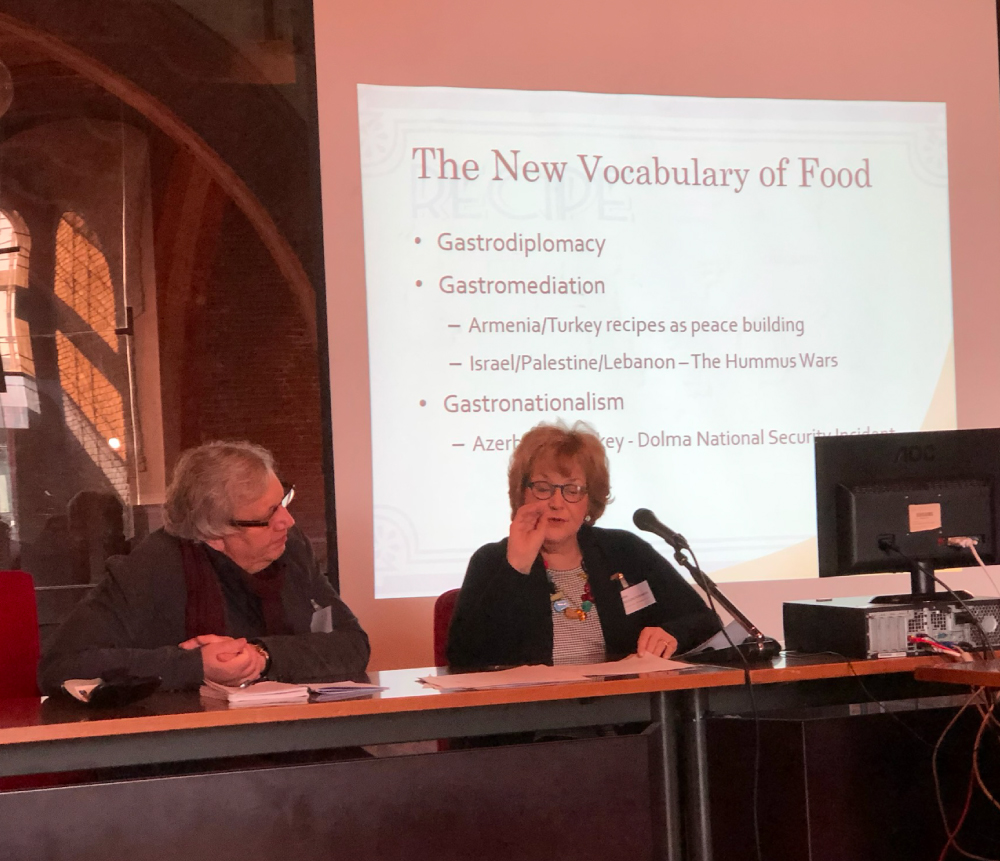Gastrodiplomacy is a form of public diplomacy that uses cuisine to communicate national identity and build cultural understanding. It links food, culture, and soft power by using national dishes, culinary traditions, and food entrepreneurs to engage foreign audiences. Paul Rockower describes gastrodiplomacy as “the act of winning hearts and minds through stomachs,” using a country’s cuisine to raise awareness of its nation brand and make culture tangible and relatable.¹
The field emerged from early case studies such as Thailand’s campaign to expand its restaurants abroad as a form of cultural outreach. Since then, countries including South Korea, Taiwan, Malaysia, and Peru have developed national culinary strategies that promote tourism, strengthen diplomacy, and highlight the global significance of their food cultures.

Gastrodiplomacy also shares practices with social gastronomy by recognizing the central role of food in connecting communities, especially in societies shaped by migration. Immigrant and refugee chefs often act as informal diplomats, using their food traditions to foster dialogue, challenge stereotypes, and encourage cross-cultural exchange. Through public programs, embassy initiatives, and community-based culinary projects, gastrodiplomacy demonstrates how food continues to influence global relationships and create opportunities for deeper cultural engagement.


- Mendelson Forman, Johanna. Gastrodiplomacy. In New Oxford Encyclopedia of Food Research. Oxford University Press, forthcoming/most recent edition.
- Nye, Joseph S. Soft Power: The Means to Success in World Politics. Cambridge, MA: PublicAffairs, 2004. (See Chapter 2)
- Chapple-Sokol, Sam. “Culinary Diplomacy: Breaking Bread to Win Hearts and Minds.” The Hague Journal of Diplomacy 8, no. 2 (2013): 161–183.
- Rockower, Paul. “Recipes for Gastrodiplomacy.” Place Branding and Public Diplomacy 8, no. 3 (2012): 235–246.
- Putri Ayu, Debita Aisyiyah. “Vietnamese Gastrodiplomacy: A Taste Journey That Changes the Nation’s Image.” Seasia, 2025.
- Johanna Mendelson Forman, “On Turkish Coffee and Gastrodiplomacy: The borderless nature of Turkish coffee makes it an effective tool for bridging divides,”
- Ulung, Alessandro Kurniawan.“The Practice of Indonesian Gastrodiplomacy: Challenges and Opportunities Behind the Indonesia Spice Up the World Campaign.”
- Juyan Zhang, “The Foods of the Worlds: Mapping and Comparing Contemporary Gastrodiplomacy Campaigns,” International Journal of Communication 9 (2015), 568–591.
- Johanna Mendelson Forman, “Ukraine’s Borsch’s Diplomacy,” Inkstick Media, December 23, 2021.
- Which countries dominate the world’s dinner tables? The Economist
- Mary Jo Pham, “Food as Communication: A Case Study of South Korea’s Gastrodiplomacy,” Journal of International Service, v.22, Spring 2013.
- Atsuko Ichijo and Ronald Ranta, Food, National Identity and Nationalism, Palgrave Macmillan:Basingstoke, 2016.
- Fabio Parasecoli, “How Countries Use Food to Win Friends and Influence People: Gastrodiplomacy has gone mainstream,” August 20, 2022, Foreign Policy
- Johanna Mendelson Forman, The Borsch War is Over – Inkstick
